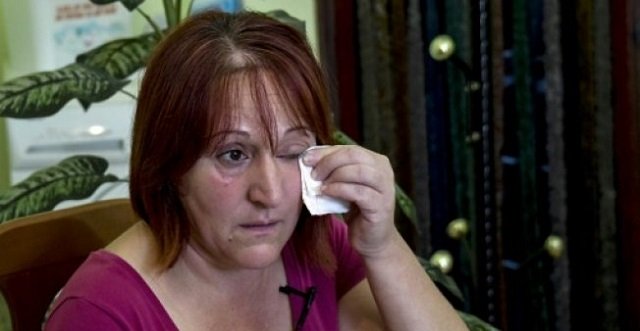
"A policeman said he saw no evidence of abuse and that he was neither a doctor nor a psychologist, so he could not help me," the 33-year-old Serbian mother told AFP. "It is your word against his word, there is nothing you can do," she recalled the policeman saying.
Ahead of the International Day for the Elimination of Violence against Women, which falls on Saturday, activists warn that the scourge of domestic abuse remains deep-seated across the Balkans - and that not enough is being done to stop it. "Police react slowly and insufficiently, but the worst is the judiciary, which is very slow. Judges are not sensitised enough to the problem of domestic violence," said Vesna Stanojevic, who runs the Belgrade safe house.
Aleksandra, whose name has been changed to protect her identity, eventually got help after she insisted that she would press charges, and social services sent her and her baby to the safe house. But others are not so lucky.
From slum-dweller to senator? French Roma woman aims high
Within one week in July this year, two men killed their wives at social care centres in Belgrade, prompting calls for urgent measures to tackle such violence. One man beat his wife to death with a stone in front of their three sons, the first time he had seen his family since his release from prison.
A few days later, a man stabbed his wife to death and strangled their four-year-old son, while injuring three social service workers who had tried to stop him. A new Serbian law in June threatens penalties for authorities who fail to deal with domestic abuse, but activists say police remain under-trained and legal proceedings still lag.
According to Serbia's Women Against Violence Network, a coalition of NGOs, 33 women were killed last year in the country - home to about seven million people - by abusive partners or male family members. Bosnia's human rights ministry says more than half of women and girls over the age of 15 have been victims of some form of violence.
Nearly 70 per cent of women have suffered domestic violence in Kosovo, according to a 2015 survey by the Kosovo Women's Network. And in Albania, police recorded nearly 3,000 cases of domestic violence and issued 1,643 protection orders across the population of 2.8 million between January and September.
Across these countries, activists say they believe the true extent of abuse is under-reported owing to the lack of support and awareness. "Mentalities in Albania today are still largely influenced by the patriarchal model, putting the man in a position of dominance over the submissive woman," said Ana Ruci of Refleksione, a women's association in Tirana.
Women's groups in the former Yugoslavia say endemic poverty and trauma from the 1990s Balkan wars have also fuelled domestic abuse across the region. The European Union in May described violence against women as "one of the biggest social issues" in the Balkans as it launched a project with the UN Women agency to raise awareness about the issue and empower women and girls.
Last year a video circulated online of a girl in the town of Rahovec, western Kosovo, being kicked and dragged near her high school - until she was unable to walk - by her uncle, who is a teacher at the school. Local police officers played down the incident and the head teacher said it was a family matter.
"Kosovo society, over the years, has accepted the use of domestic violence as a form of education and discipline for children," said the Kosovo Women's Network, an umbrella group of rights organisations. Similar concerns are expressed in Albania, where for months Merita Doci has been afraid to leave her house in the western town of Fushe-Kruje.
She was going to work early in July when her ex-husband came up from behind and started beating her with an iron bar, she told AFP, showing the bruises on her head and body. Covered in blood, she managed to get to the nearest police station and was taken to a hospital emergency room.
EU's Juncker tells Orban to meet migration obligations
Despite opening legal proceedings against her fugitive husband and receiving four protection orders from the authorities, she said she has received no extra security. In August, an Albanian judge and mother of three, Fildes Hafizi, was killed by her ex-husband, despite having appealed to police and legal authorities for help.
"The death of a judge, who knew all of the instruments of the law but could not use them to protect her life, is discouraging for women who do not know the law," said Vjollca Mece, a human rights lawyer. At the Belgrade safe house, Doci and her son take turns to keep watch at night, and they keep an axe by the door, in case her former husband tries to come back to kill her.
"I am still threatened and there are no police, no court, no prosecutor's office. Nobody does anything," she said. "When will they intervene? When I am dead?"









1732105641-0/BeFunky-collage-(78)1732105641-0-270x192.webp)







COMMENTS
Comments are moderated and generally will be posted if they are on-topic and not abusive.
For more information, please see our Comments FAQ